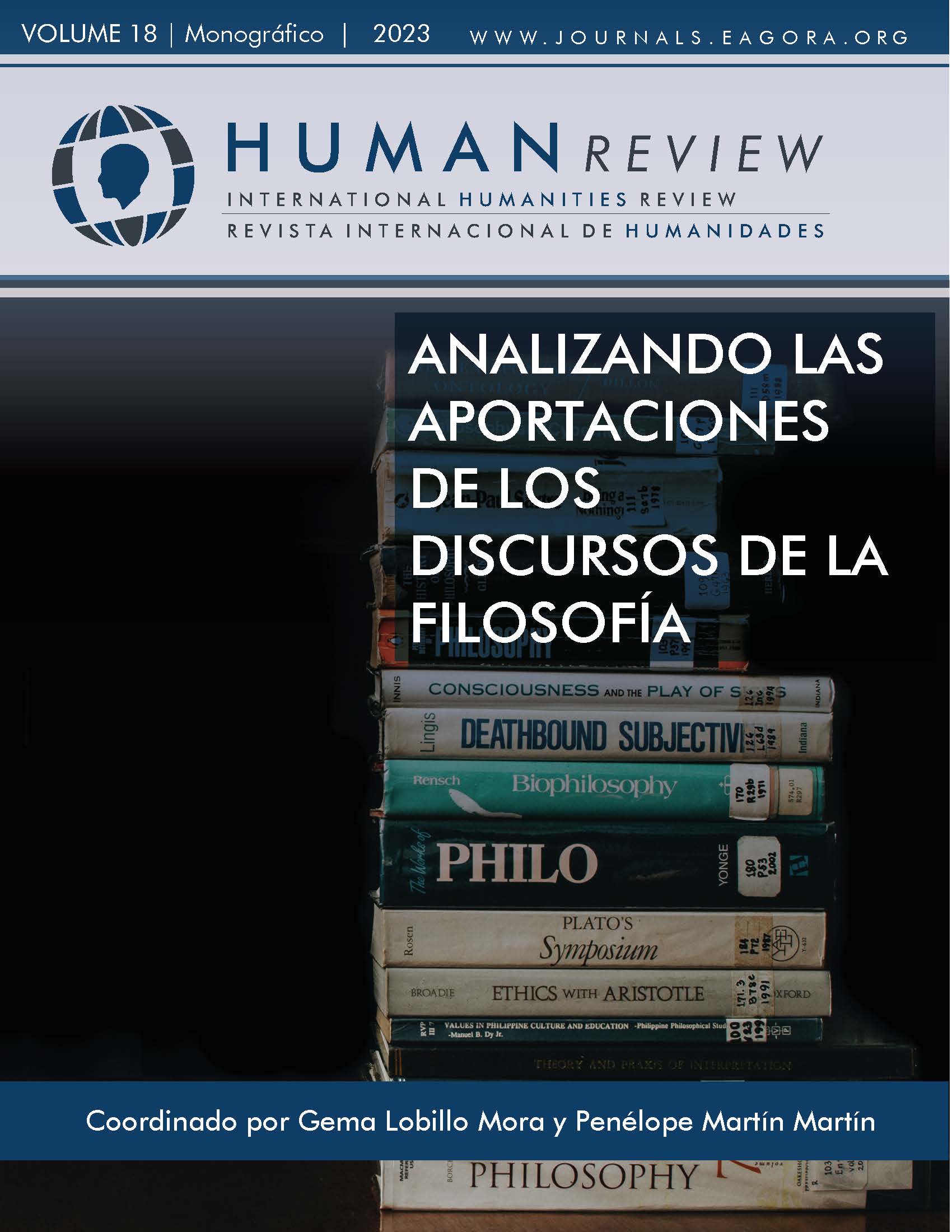The philosophical curriculum in Chile and the development of complex thought and metacognition
DOI:
https://doi.org/10.37467/revhuman.v18.4897Keywords:
Complex thinking, Metacognition, Curriculum, Philosophy, Chilean Education, Faculty, Classroom practicesAbstract
Under a qualitative-interpretive paradigm, a content analysis of the Chilean philosophy plans and programs was carried out, regarding the ministerial guidelines on the development of complex thinking and metacognition contained in them. Based on the categories that emerged, interviews were carried out with the teachers of the level, to compare the consistency of the guidelines with the conceptions and practices described by them.
The existence of an academic-rationalist approach to curricular conceptions and activities, reductionist conceptions of complex thought and metacognition, transferring the responsibility of the lack of achievement to their students was verified.
References
COMISIÓN SOBRE FORMACIÓN INICIAL DE DOCENTES (2005). Informe Comisión sobre Formación Inicial Docente, Santiago: Ministerio de Educación y Organización de Estados Iberoamericanos para la Educación, la Ciencia y la Cultura (OEI).
De Luque, A. y Ontoria A. (2004). Personalismo social: hacia un cambio en la metodología docente. Universidad de Córdoba.
Elam, S. (1973). La educación y la estructura del conocimiento. El Ateneo.
Fullan, M. (1994). Coordinating bottom-up and top-down strategies for education reform. In R. Elmore & S. Fuhrman (Eds.), The governance of curriculum (pp. 186–202). Alexandria, VA: Association for Supervision and Curriculum Development.
Hernández, R., Collado, C. y Batista, P. (2003). Metodología de la investigación. Mac Graw Hill.
Honig, M. I. (2004). The new middle management: The role of intermediary organizations in complex education policy implementation. Educational Evaluation and Policy Analysis, 26(1) (pp. 65-87).
González, G. (2010). La transición entre teoría y campo de investigación en la didáctica de las ciencias sociales. En R. Ávila, P. Rivero, y P. Domínguez, (Eds.). Metodología de investigación en Didáctica de las Ciencias Sociales. INSTITUCIÓN «FERNANDO EL CATÓLICO» (C.S.I.C.).
Kintsch, W, (1996), “El rol del conocimiento en la comprensión del discurso: un modelo de construcción-integración”, en K. Goodman y W. Kintsch. (Eds.). Textos en Contexto 2. Los procesos de lectura y escritura (pp. 1-133). Kapeluz.
Kohan, W. (2007), Infancia, política y pensamiento: Ensayos de filosofía y educación. Del estante editorial.
Kohan, W. (15 de junio de 2019). Walter Kohan: La filosofía ayuda a tener gente pensante dentro de las escuelas. La voz. Recuperado de https://www.lavoz.com.ar/ciudadanos/walter-kohan-filosofia-ayuda-tener-gente-pensante-dentro-de-escuelas
Lipman, M. (1998). Pensamiento complejo y educación. Ediciones de la Torre.
Lipman M., Sharp A., y Oscayan F. (1988). Investigación filosófica. Manual del profesor para acompañar a El descubrimiento de Harry Stottlemeier. Ediciones de la Torre.
MINEDUC, (2001), Programa de estudio Cuarto año medio. Formación General Educación Media. Santiago de Chile: Ministerio de Educación.
MINEDUC, (2001), Programa de estudio Tercer año medio. Formación General Educación Media. Santiago de Chile: Ministerio de Educación.
Pedragosa, M. A. (2018). Una mirada psicoeducativa sobre la construcción del conocimiento profesional docente. En A. M. Palacios, M. A. Pedragosa, y M. Querejeta, Encuentros en la encrucijada Psicología, Cultura y Educación (pp. 38-52). Edulp.
Perkins, D. y Tishman, S. (1997). Un aula para pensar. Aprender y enseñar en una cultura de pensamiento. AIQUE.
Ruiz, J. (2012). Metodología de la investigación. Universidad de Deusto.
Salazar M., Funes R. y Farzaneh D., (2018). El Aula, un Lugar para Aprender a Pensar y Aprender a Convivir. Revista Interuniversitaria de Formación del Profesorado, 92(32.2) (pp. 69-80)
Sánchez M. (2004) Ética para la vida cotidiana. Editorial Del Orto.
Taba, H. (1987). Elaboracion del curriculo: Teoria y práctica. Troquel
Vallejos, R. M. y Nail, O. (2018). Pensar, dialogar y reflexionar juntos desde la filosofía: desafíos pendientes en la escuela. RIL Editores
Van Dijk A. (1999), El análisis crítico del discurso In: Anthropos.
Zabala, H. (2014). El desarrollo de las habilidades de pensamiento en el programa de filosofía para niños. Espiral. Revista de docencia e investigación, Vol. 4(1), pp. 59-70.
Downloads
Published
How to Cite
Issue
Section
License
Those authors who publish in this journal accept the following terms:
- Authors will keep the moral right of the work and they will transfer the commercial rights.
- After 1 year from publication, the work shall thereafter be open access online on our website, but will retain copyright.
- In the event that the authors wish to assign an Creative Commons (CC) license, they may request it by writing to publishing@eagora.org









